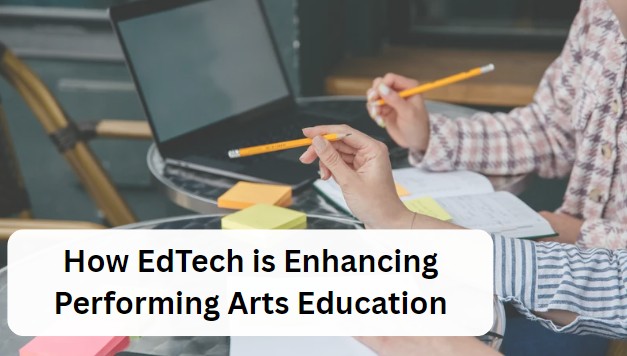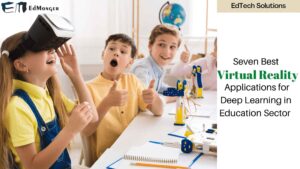The Intersection of EdTech and Performing Arts
The performing arts have always thrived on creativity, expression, and live interaction. However, the recent shift to edtech has given it a massive transformation in performing arts. This has resulted in making performing arts education more accessible, engaging, and effective. The changes are visible from AI-powered music tutoring to VR-enhanced theater training; the fusion of technology and the arts is reshaping how students learn and practice their craft.
Revolutionizing Music Education with EdTech
Online Music Learning Platforms
EdTech has helped students to learn top-tier music instruction from anywhere which was not possible without the technology. There are many apps and software like Yousician, Simply Piano, and Flowkey offer interactive lessons with real-time feedback. These tools help students learn music theory, practice instruments, and enhance their skills without requiring in-person classes.
Smart Instrument Maintenance and Care
While technology makes music learning easier, proper instrument maintenance is still essential. Students and educators benefit from detailed online guides on string instrument maintenance to preserve sound quality and extend the lifespan of their instruments. So, you’ve signed the rental agreement, taken home that beautiful violin, cello, or bass, and now you’re ready to start playing. But do you know exactly the things you’re responsible for while this instrument is in your care? Understanding maintenance guidelines in string instrument rentals helps you avoid unexpected charges, keeps your instrument sounding its best, and builds good habits that serve you throughout your musical journey.
Transforming Dance Education with Virtual Classes
Online Dance Platforms
EdTech has opened new avenues for dance learners with platforms like Steezy, Cli Studios, and DancePlug. Since personalized learning is the biggest advantage of Edtech, these platforms offer on-demand dance lessons with step-by-step guidance, making it super easy for students to learn at their own pace.
VR and AR in Dance Training
Virtual Reality (VR) and Augmented Reality (AR) are making dance education immersive. Students can use VR headsets to practice complex choreography in a virtual environment, enhancing their spatial awareness and performance skills.
Enhancing Theater Education with Technology
Online Acting Classes and Simulations
Boundaries, mortars always have restricted many aspirants to pursue their dreams but technology has supported many acting students. Now they can access online courses from renowned theater academies. Platforms like MasterClass offer acting lessons by celebrities such as Natalie Portman and Samuel L. Jackson.
Virtual Rehearsal Spaces
This is something out of the box, edTech tools like StageCloud allow theater groups to rehearse in virtual spaces. These platforms simulate real-world stage environments, helping students collaborate remotely and visualize their performances. These platforms motivate students who were giving up their dreams because of physical restrictions.
AI-Powered Performing Arts Education
AI in Music Composition and Training
AI tools like Amper Music and AIVA assist students in composing music by generating original tracks. These tools enable students to experiment with different musical styles and learn composition skills faster.
Data-Driven Performance Feedback
AI-powered platforms analyze student performances and provide detailed feedback. For example, SmartMusic offers pitch, rhythm, and timing analysis, helping students identify areas for improvement.
Benefits of EdTech in Performing Arts Education
- Accessibility: Students from remote areas can access high-quality performing arts education.
- Flexibility: On-demand classes allow learners to practice at their convenience.
- Cost-Effectiveness: Online platforms reduce the need for expensive physical classes.
- Improved Feedback: AI and VR offer personalized performance feedback.
The Future of Performing Arts with EdTech
The fusion of EdTech with performing arts is revolutionizing education, making it more accessible and effective. From AI-driven music training to virtual dance rehearsals, technology is empowering students to learn, practice, and excel. As EdTech continues to evolve, the performing arts will become even more dynamic and innovative.




